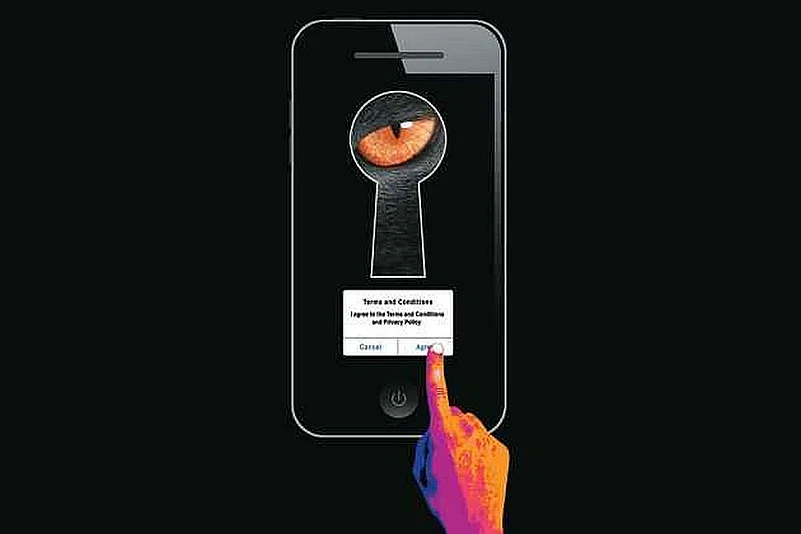Amid concerns of privacy invasion with the linking of Aadhaar to various services, Rajiv Mehrishi who retired as home secretary and is set to become the next CAG, told a Parliamentary Panel that 40 per cent of people who use smartphones knowingly or unknowingly share data with most of the world, including the CIA, the intelligence agency of the United States.
Mehrishi pointed out the risks of data sharing through smartphones, saying that if every Indian started using a smartphone, data of a 100 per cent of them could be shared, reported The Indian Express.
Outlook had earlier described in a story how mobile applications play data pirates to sensitive information on ones phone for the sake of corporates.
Advertisement
Once you have installed an application and said yes to app permissions, you virtually lose all right over the information stored in your mobile phone.
Each time you rush to install a mobile app, skipping privacy policy, you are giving permission to the app to scroll through details that pretty much make up an instant biography—everything from text messages to media files, all sorts of nuggets of information that go way beyond the needs of ‘customising via location’. Everything that a data-hungry business, whether a food startup or an MNC, needs to know about you.
In some cases, this information is shared with third parties to get additional revenues.
Advertisement
On similar lines is the Aadhaar Act which has faced opposition on privacy issues.
The Supreme Court in a landmark judgement had pronounced privacy a fundamental right. A nine-judge constitutional bench headed by former Chief Justice of India J.S. Khehar had unanimously ruled that "right to privacy is an intrinsic part of Right to Life and Personal Liberty under Article 21 and entire Part III of the Constitution".
The ruling on the highly contentious issue was to deal with a batch of petitions challenging the Centre's move to make Aadhaar mandatory for availing the benefits of various social welfare schemes.
However, a smaller bench of five judges has yet to hear whether the Aadhaar Act violates the right to privacy.




















